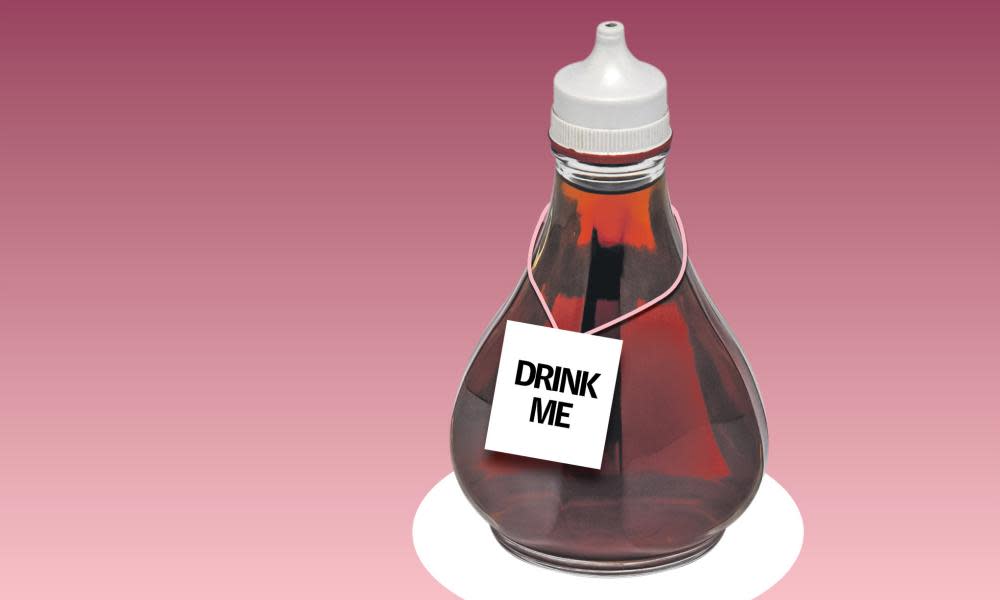Vinegar is the latest health drink phenomenon – but does it strike a sour note?

Since Victoria Beckham revealed last autumn that she starts each day with a gulp of apple cider vinegar, fashionistas have been afizz. Now a visit to Sainsbury’s will attest to the public appetite for drinking vinegar. As opposed to the bracing neat shot that Beckham favours – “Be brave!” she said in an Instagram post; “Two tbsp first thing on an empty tummy!” – these diluted, flavoured, vinegar-based mixes are easy on the tongue and sit comfortably between the piquant and sparkle of the kombuchas, kefirs, birch waters and other health juices that have filled supermarket shelves in recent years.
Vinegar-based drinks are, of course, nothing new. Cocktail bars have, for years, veered towards the sour. What is new is the expansion into the ready-to-drink mass market. At the Little Duck Picklery in London – which produces its own kombucha, kefir, vinegar and assorted cocktails – Rory Moore, the assistant manager, blames a collective souring of the palate, as we have grown more conscious of the amount of sugar we are consuming.
Lower sugar content isn’t the only health benefit routinely ascribed to drinking vinegars, which come with claims that they reduce cholesterol, support the immune system, promote digestion, soothe irritated skin and dry throats, relieve muscle pain and, most headline-readily, aid weight loss. It’s a list as bold as it is lengthy, which might go some way to explaining producers’ current eagerness to cash in: it is to be the next thing in the £500bn-plus global wellness industry.
Medical analysis, though, readily tempers those assertions. A joint BBC/Aston University study in 2016 concluded that “cider vinegar probably won’t help anyone slim down, but it may help those who struggle with their blood sugar or cholesterol levels”. Note the “may”. Harvard professor Robert H Shmerling concurs: while the healing properties (as an antibiotic, a strengthener, a detoxifier, a cure for scurvy) of the ferment have been touted for millennia, he writes, the scientific evidence for its ability to induce weight loss “is not compelling”.
A lack of compelling evidence, though, hasn’t so far been much of a downer for the economic standing of wellness products. Then again, whether or not they are as healthy as they say they are, these tart, fizzy drinks are not a downer either. If nothing else, drinking vinegar – be it first thing in the morning or during a mid-afternoon-slump – will definitely wake you up.
Taste test
Comvita’s manuka-honey-infused apple cider (Ocado; Holland and Barrett)
A mild, honeyed sharpness with a hint of fizz and no added sugar.
Soupologie’s Viva La Vinegar, strawberry and basil (Sainsbury’s)
More smoothie than vinegar, with the fruit overpowering the ferment.
Los Bros apple cider vinegar tonic, ginger and turmeric (Sainsbury’s)
More soda than health drink, with added sugar, fermented glucose and apple juice concentrate.
Bragg apple cider vinegar, concord grape and acai (Holland and Barrett)
Lightly sparkling and quite sweet, with a slight metallic aftertaste.

 Yahoo News
Yahoo News 
